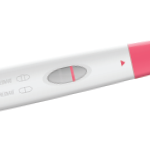
ajt/shutterstock.com
Ghalandari et al. analyzed cord blood levels of tumor necrosis factor inhibitors (TNFi’s) in post-partum women with rheumatic disease, seeking to validate the guidance outlined in EULAR’s document on points to consider for the use of anti-rheumatic drugs before and during pregnancy and lactation. Published in 2016, the document recommends the discontinuation of treatment with adalimumab and infliximab at week 20 of pregnancy and the discontinuation of etanercept at 30–32 weeks. Certolizumab pegol can be continued throughout pregnancy, up to 38 weeks.1,2
For the study, the researchers used patient data from an ongoing, prospective cohort study on inflammatory rheumatic diseases and pregnancy at the Erasmus Medical Center, Rotterdam, the Netherlands (Preconceptional Counselling in Active Rheumatoid Arthritis [PreCARA]; NCT01345071).3 Patients whose cord blood was collected at birth were included in their analysis.
The patients: Patients in the PreCARA cohort received a modified treat-to-target approach for rheumatoid arthritis (48%), spondyloarthropathies (23%), psoriatic arthritis (20%), juvenile idiopathic arthritis (5%) and other rheumatic diseases (4%).4 They had a mean age of 31.2±3.9 years, a disease duration of 8.0±6.5 years at study inclusion and disease activity scores (DAS28-CRP) of 2.2±0.8 in the third trimester. Additionally, 44% (n=49) of the patients had never before given birth to a live baby.
Patients became pregnant while taking a TNFi (e.g., adalimumab, etanercept or infliximab) and then discontinued it at the advised gestational age from the EULAR guidance. After discontinuing the TNFi, these women switched to certolizumab pegol and/or prednisone. Certolizumab pegol was discontinued at the gestational age of 38 weeks to prevent maternal infections during delivery. This recommendation in the EULAR document was based on expert opinion.
In each trimester, maternal blood was collected at times unrelated to TNFi administration and analyzed for the concentration of TNFi. Cord blood was collected at birth and also analyzed for the concentration of TNFi in it.
The Results
Ghalandari et al. analyzed the samples of 111 patients from the PreCARA cohort. Most patients stopped TNFi treatment prior to the EULAR-recommended gestational age. Adalimumab (n=25) was stopped before 20 weeks of pregnancy by 20 patients (80%), etanercept (n=30) was stopped before 30 weeks of pregnancy by 29 patients (97%), and infliximab (n=14) was stopped before 20 weeks of pregnancy by 10 patients (71%). The median gestational age when adalimumab was stopped was 19 weeks, the median gestational age when etanercept was stopped was 25 weeks, and the median gestational age when infliximab was stopped was 18.4 weeks. For certolizumab pegol (n=68), the median gestational age when treatment was stopped was 37 weeks (interquartile range [IQR]: 34.1–38.1 weeks), and the median time between the last dose of certolizumab pegol and delivery was 15 days (IQR: 2–34 days).


